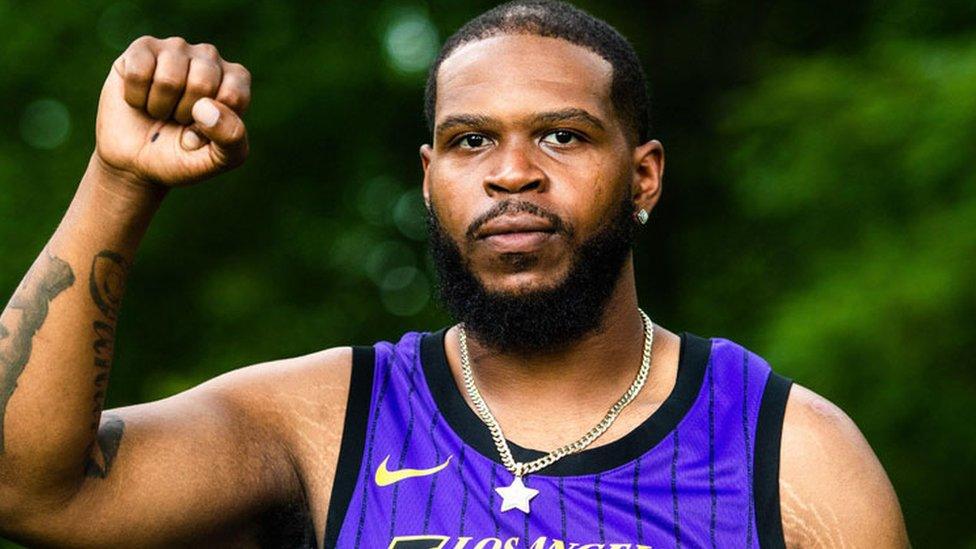Derek Chauvin trial: What are the questions asked of potential jurors?
- Published
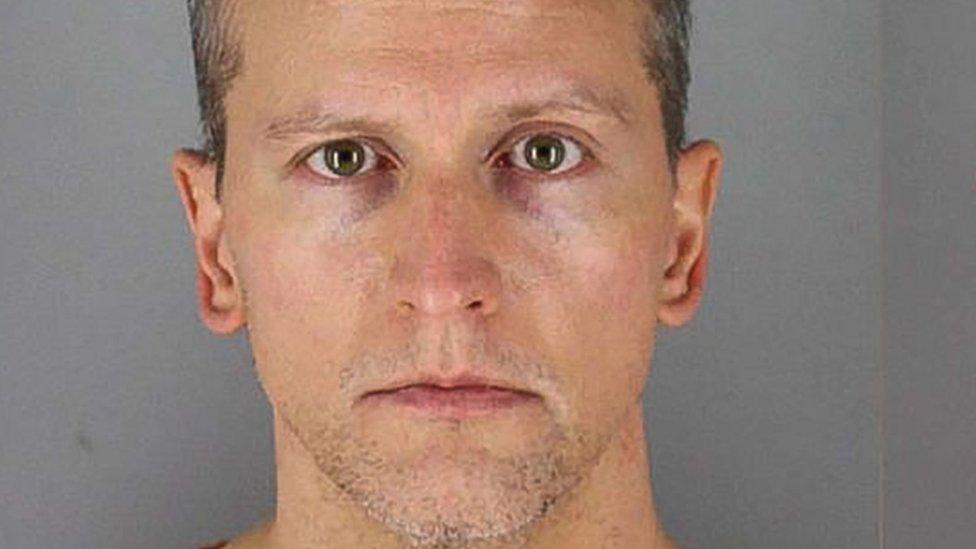
Derek Chauvin denies the charges
The trial of Derek Chauvin, a former police officer charged in the death of George Floyd, an unarmed black man, could be one of the most highly charged in recent history. Finding a group of jurors - impartial men and women who reflect the city's diversity - is a challenge.
Legal experts say that the selection of the jury is crucial to the trial, and to the perception that people have of the legal process.
"The whole world watched this video, so the whole world is expecting there to be a response," says Artika Tyner, a law professor at University of Saint Thomas in Minneapolis.
Jury selection could take some two weeks - an unusually long time for the process. A questionnaire for potential jurors runs 14 pages, external - covering a myriad of details about the case and its impact - has been distributed to the individuals who are under consideration, in order to help select an unbiased panel.
On day one of jury selection, a succession of potential jurors were dismissed due to various concerns about their impartiality.
We put some of the questions to people in Minneapolis to get their thoughts.
Did you participate in marches against police brutality, and, if so, did you carry a sign?
David Lee, a heavy equipment operator in Minneapolis, says he does not usually attend street demonstrations, especially during the pandemic.
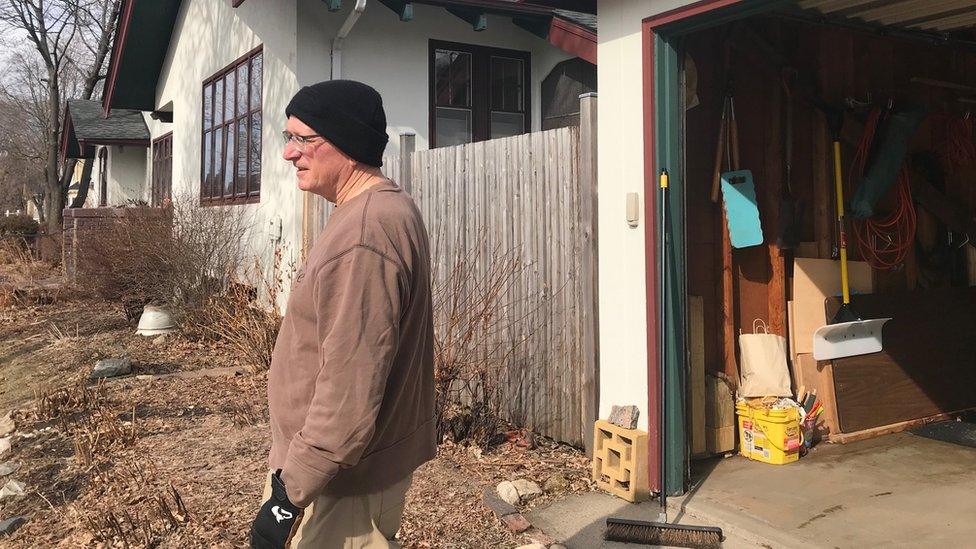
David Lee said joining a demonstration was 'eye-opening'
But he and his wife joined a protest, National Mothers March Against Police Violence, in nearby St Paul last year. He says he did not carry a sign, but found the experience moving.
"You know, mothers losing their children to police brutality is pretty terrible, in any circumstance," he says, describing the event as "eye-opening".
Another Minneapolis local, Rosa Gomez, 19, says she has been involved in the movement against the excessive use of force by police officers. She is studying political science at the University of Wisconsin.
"I have been involved in several demonstrations against police brutality," she says. "And I have held signs, some including Latinx for Black Lives Matter; No Justice, No Peace; and Black Lives Matter."
Jack Frederickson, a health care consultant, says he didn't attend any of the demonstrations.
He adds: "But I did check out the protests early in the spring and summer. I was a little bit wary due to the Covid situation, but I have been trying to lend my support otherwise."
What are your views of the group Blue Lives Matter - favourable or unfavourable?
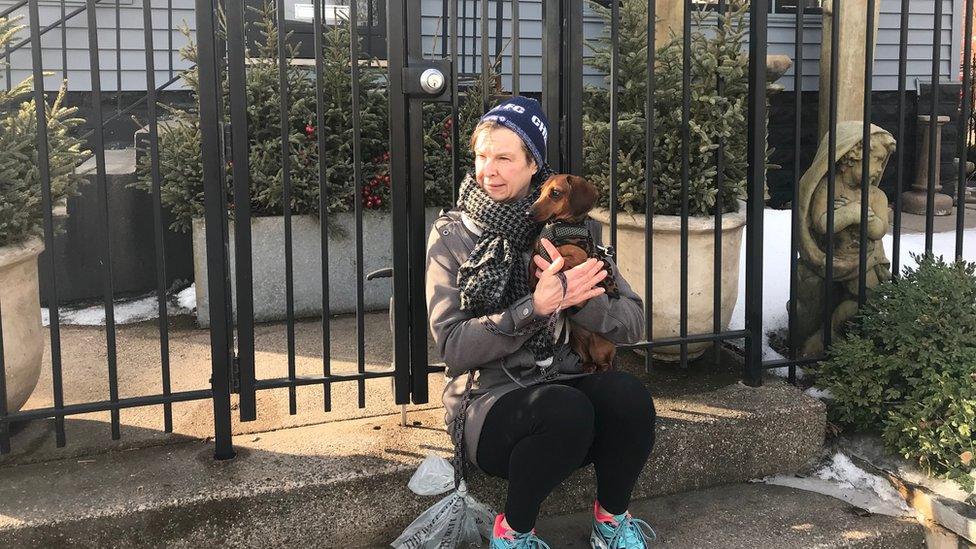
Nancy Erickson expressed support for the pro-police Blue Lives Matter group
Nancy Erickson, who was sitting outside on Sunday morning with her dachshund, Siggi, a few blocks from a Minneapolis park, used to work for the US Senate in Washington.
She says she has a very positive view of police officers because of her family background, and understands the importance of recognising the officers, and of pro-police groups such as Blue Lives Matter: "I have brothers who are in law enforcement, so I, of course, believe that blue lives matter, and that all lives matter."
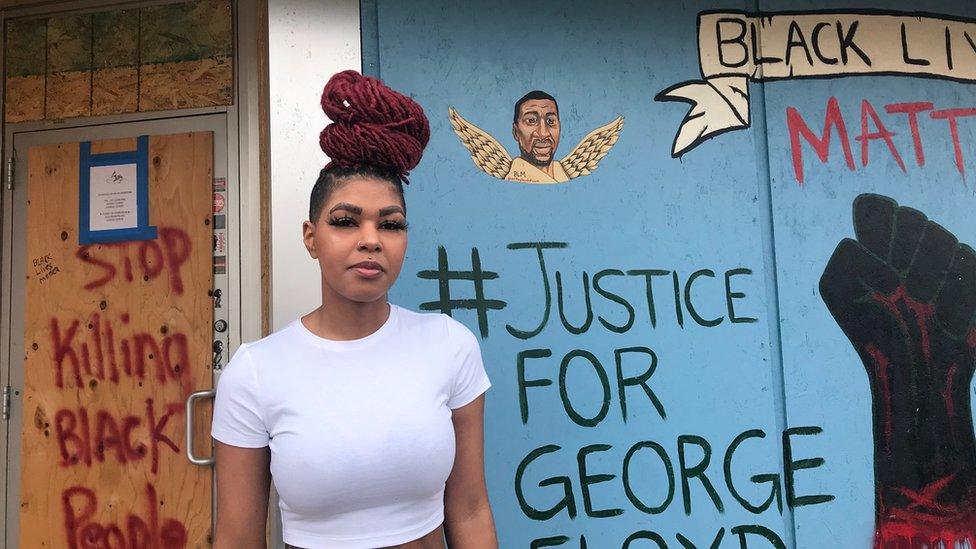
Breez Sapphira says the pro-police group minimises the Black Lives Matter message
Breez Sapphira, a photographer who works at a sneaker and fashion boutique in Minneapolis, sees the Blue Lives Matter organisation in starkly different terms, and says she does not support the group.
"I think Blue Lives Matter is a construct that is there to minimise the importance of the Black Lives Matter movement. Police officers get to put on a uniform every day," she says. "We don't get to choose what we look like, or who we are."
Kristen Warsinkse, a clinical researcher who works in the medical field, is less decided.
"I guess I would say - it would be an unfavourable way," she says. "They're just trying to take away from Black Lives Matter, and essentially it should be be more focused on Black Lives Matter versus Blue Lives. I guess I don't know how to answer this."
Do you believe our criminal justice system works?
Alice Lindgern, a college senior, is majoring in communications at St Catherine University in Saint Paul.
She says the justice system works - for some: "I think it works for the right people, and if you're like a white-presenting straight person it works generally well for you, and if you're not, then it's flawed."
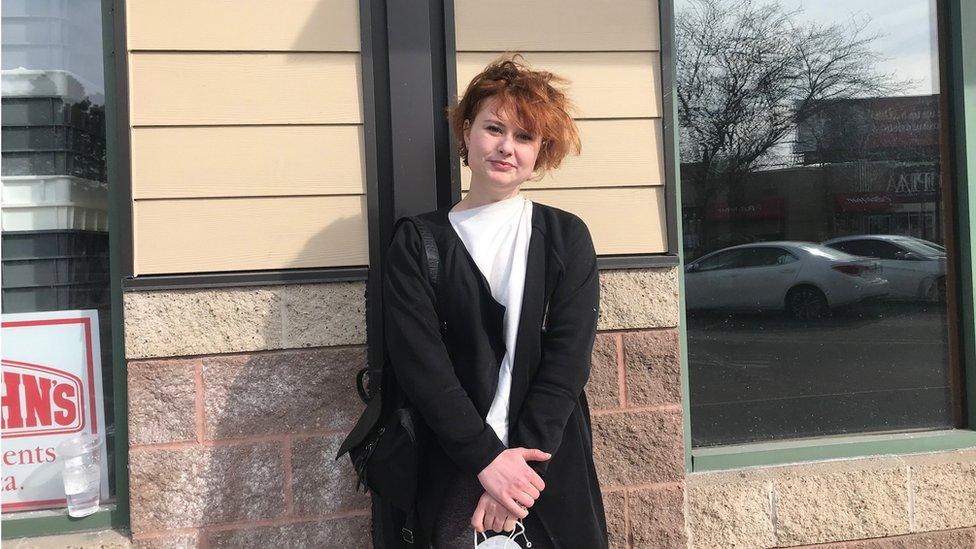
Alice Lindgern says the US justice system is 'flawed'
Michael Schmitt, who used to work for a US airline, is now retired in Minneapolis, and he says that it is a hard question to answer. "The justice system does, I think, primarily work here," he says. Then he adds an important caveat: "If you have a good lawyer."
Tom Dolan is currently unemployed, but has spent some time studying law.
"I think the justice system is pretty self-evidently broken," he says. "I think it operates to protect privilege and property and to the detriment of marginalised groups."
- Published8 March 2021
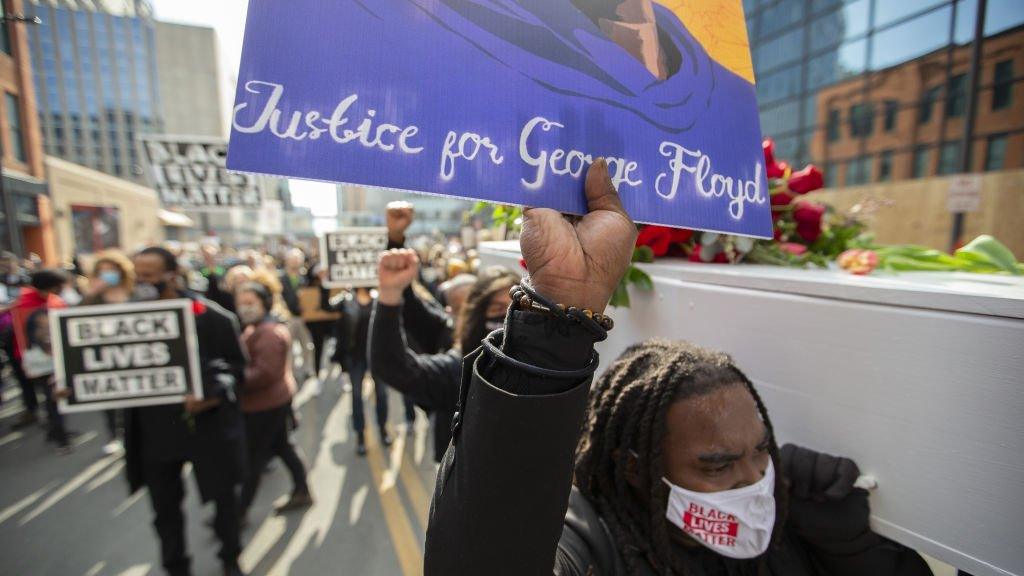
- Published24 May 2021
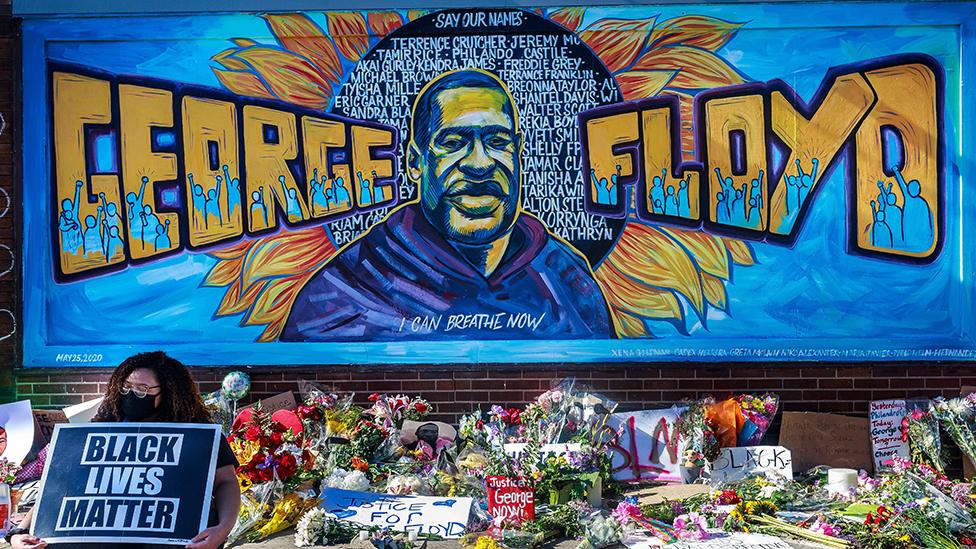
- Published8 March 2021
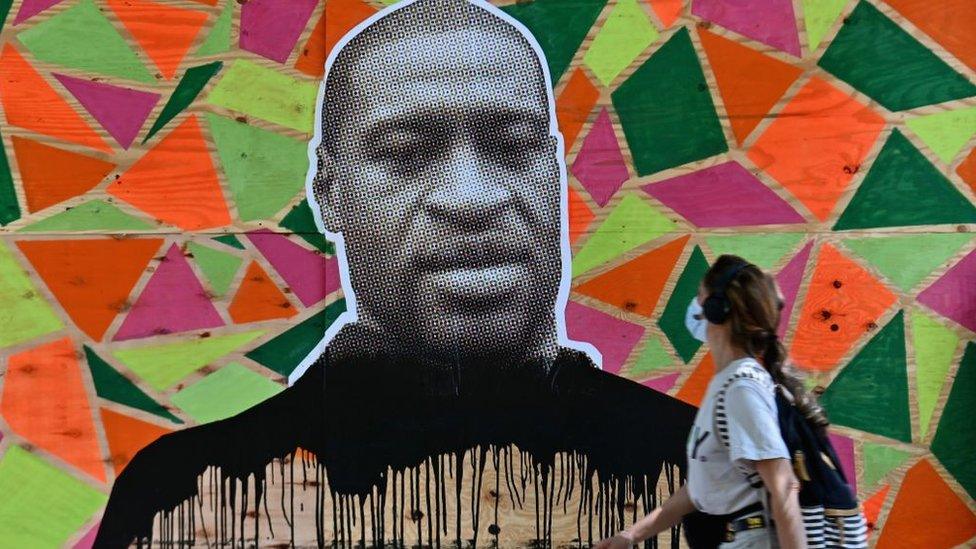
- Published9 March 2021
